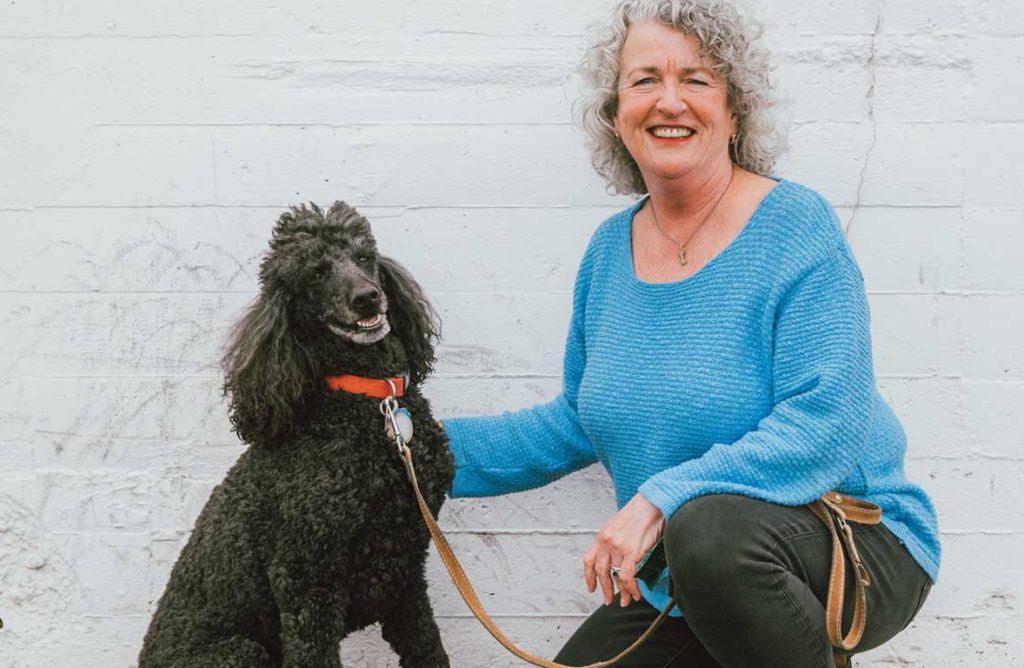Advertisement
Innovation for Good: Portland Pet Food and Wagster Treats
Portland Pet Food Company
Fact-Checked
This article has been written and fact-checked by experts in the field.

“If you can’t pronounce it and don’t know what it is, why would you feed it to your best friend?”
Food labels, ingredients, and dietary guidelines are top of mind for any health-conscious consumer. But what goes into the food we feed our pets? That was the question Katie McCarron posed when her 14-year-old poodle Rosie repeatedly refused her kibble.
During a check-up about Rosie’s loss of appetite, the vet predicted that she had six months to live. To make the most of her remaining months, McCarron sought insight into Rosie’s loss of appetite, and what she learned about pet food shocked her.
“I was appalled when I learned what was in pet food,” said McCarron about ingredients like rendered products from meat. “Nothing that’s fit for human consumption.”
Disturbed by these ingredients, McCarron decided to try a new approach to feeding her beloved pet. As she cooked supper for her family one evening in 2014, she used the leftover ingredients to prepare a bowl of beef and rice for Rosie. It was this bowl that revived Rosie’s appetite and sparked McCarron’s creation of Portland Pet Food Company, an organic, human-grade pet food brand.
“My goal is to help people understand that there are other options,” said McCarron, who saw Rosie live for three more years after restricting her diet to all-natural, human-grade ingredients.
Advertisement
Clean food, cleaner planet
While improving the lives of pets is at the forefront of its mission, Portland Pet Food Company has also turned its attention to making the planet greener. In 2016, McCarron revamped her packaging, transitioning from frozen meals requiring dry ice and styrofoam for shipping to shelf-stable and microwavable pouches that can be repurposed through a partnership with mail-in recycling company, TerraCycle.
McCarron’s sustainability practices also include upcycling, the process by which otherwise discarded material is used to create a new, high-quality product. Through upcycling, Portland Pet Food Company repurposes spent grain from Portland’s breweries and eggshells from its suppliers to provide a natural source of calcium to its food.
A 2022 company report stated that over 68,000 pounds of ingredients resulted from upcycling efforts that year. McCarron estimates that this number has already more than doubled in 2024.
McCarron no longer wonders about the contents of the food her pets consume. But for pet lovers who have yet to begin their investigation, she has one piece of advice: “If you can’t pronounce it and don’t know what it is, why would you feed it to your best friend?”
Advertisement
Wagster Treats
“To work in such a mission-driven business feels like an extraordinary gift.”
When Wagster Treats claims their vegan baked dog treats are life-changing, they aren’t just talking about the lives of the dogs who enjoy them. With every batch, these treats pave a path forward for low-income and homeless adults—the bakers behind the product.
Their journey to the Wagster Treats kitchen begins at the Fresh Starts Culinary Academy, a training program operated by Homeward Bound of Marin, a nonprofit organization that operates homeless shelters, develops housing, and offers job training programs in Marin County, California.
The 12-week course, valued at $10,000 but offered free of charge to individuals in the Homeward Bound system, teaches participants culinary techniques to improve their job prospects and regain their footing.
“Our goal is to help people find stability and gain independence,” says Sallie Miller, the director of social enterprise at Homeward Bound. “If you were to pop into our Wagster Treats kitchen today, you’d find a small but mighty dog treat bakery.”
Advertisement
Mission driven baking
Inside that kitchen, Wagster Treats bakers fuse simple ingredients like peanut butter, molasses, apples, and oats to create human-grade treats shaped into dog bones. These bones are packed into bright green bags and sold in stores like Whole Foods across Northern California and shipped throughout the United States.
Since Wagster Treat’s inception in 2015, all profits generated from the social enterprise have been reinvested into Homeward Bound of Marin to foster future job training initiatives. “To work in such a mission-driven business feels like an extraordinary gift,” says Miller.
As Homeward Bound of Marin celebrates its 50th anniversary this year, the occasion comes with welcome news for current and future Wagster Treats bakers. In 2025, they will be crafting treats from a spacious new production facility.
This article was originally published in the November-December 2024 issue of alive magazine (US edition).





